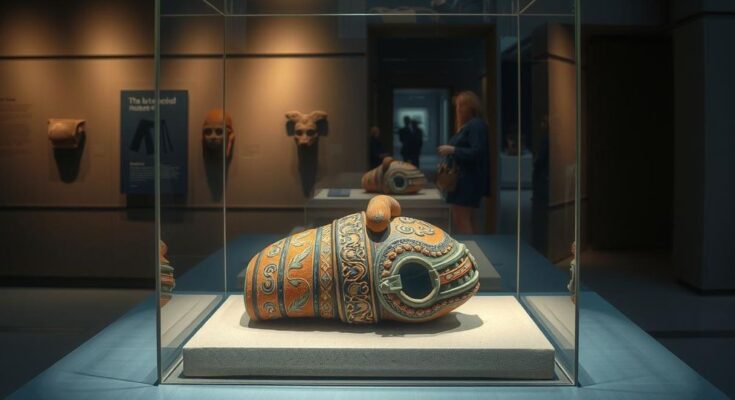The newly revised Law on Protection of Cultural Relics is poised to transform the safeguarding of China’s rich cultural heritage, taking effect this Saturday. Following comprehensive amendments, the law seeks to establish firm regulations that align with modern governance in cultural heritage protection. With this revision by the National Cultural Heritage Administration, the legal framework aims to reflect best practices and bolster the governance capacities within the sector.
Passed by the Standing Committee of the National People’s Congress, this update marks the second revision since its inception in 1982, with previous updates occurring in 2002. The law encompasses eight chapters and 101 articles, offering specific and detailed provisions. Chen Xingcan, a prominent archaeologist, highlighted that these updates indicate a strong governmental commitment to cultural heritage protection and align with the sector’s evolving needs.
President Xi Jinping has been instrumental in promoting the significance of cultural relics since the 18th National Congress of the Communist Party in 2012, underlining their irreplaceable nature. With numerous visits to historical sites, Xi reiterated that preserving this heritage must remain a top priority for urban development and cultural preservation, ensuring they are coordinated harmoniously.
The recent legal amendments introduce important protective measures, mandating archaeological surveys before any urban construction or major land development. This proactive approach aims to safeguard numerous cultural sites that have been lost due to rapid urbanisation, thereby advancing future archaeological efforts that tend to be hindered by development pressures.
The revised law significantly increases penalties for damaging cultural relics, with maximum fines rising from 500,000 yuan to 10 million yuan, a crucial deterrent against destruction. Additionally, the law intensively emphasises the protection of ungraded immovable relics, which constitute about 80% of traditional sites, ensuring that these lesser-known treasures receive the needed protections.
Changes also address enhancing public engagement with cultural relics. The law encourages museums to rotate collections, organise educational programmes, and utilise modern technology for better relic protection and presentation. Collaborative youth initiatives aim to attract students, enriching their understanding of cultural legacy.
Furthermore, the law supports international collaboration, ensuring the return of lost cultural relics while fortifying regulations against the illegal trade of artefacts. It requires sellers to abide by strict disclosure obligations, creating a safer cultural market and reducing the risks associated with illegally obtained relics. Through these provisions, institutions are urged to motivate individual contributions of cultural artefacts, thus fostering a community-centric approach to heritage management.
The revised Law on Protection of Cultural Relics will commence this Saturday, enhancing the governance and protection of China’s cultural heritage. The update includes increased penalties for damage, requirements for archaeological surveys before development, and emphasis on community engagement and international collaboration in cultural preservation efforts.
The newly revised Law on Protection of Cultural Relics signals a robust commitment to safeguarding China’s cultural heritage through comprehensive legal frameworks. By emphasising detailed provisions, community engagement, and international cooperation, this legislation aims to protect invaluable historical treasures while adapting to modern societal needs. The law signifies a significant leap forward in the preservation of cultural identity and heritage for generations to come.
Original Source: www.chinadaily.com.cn



